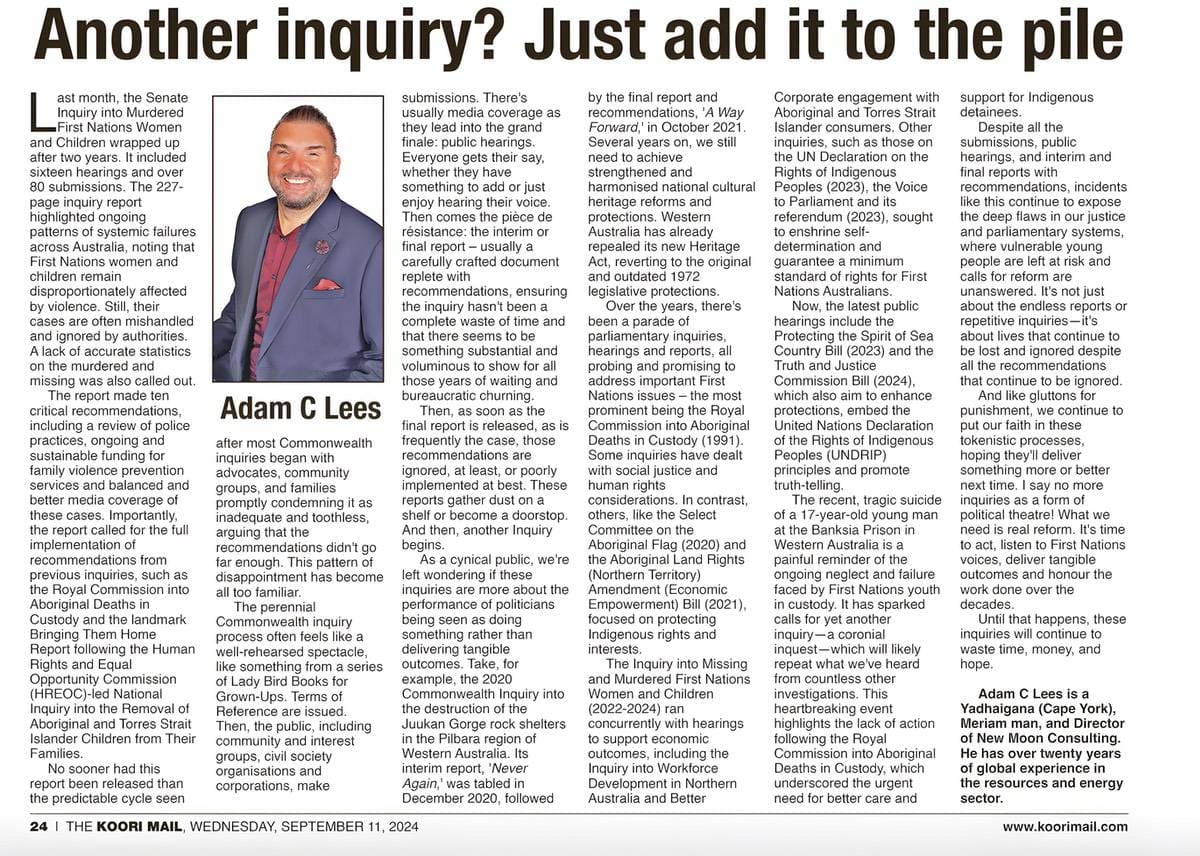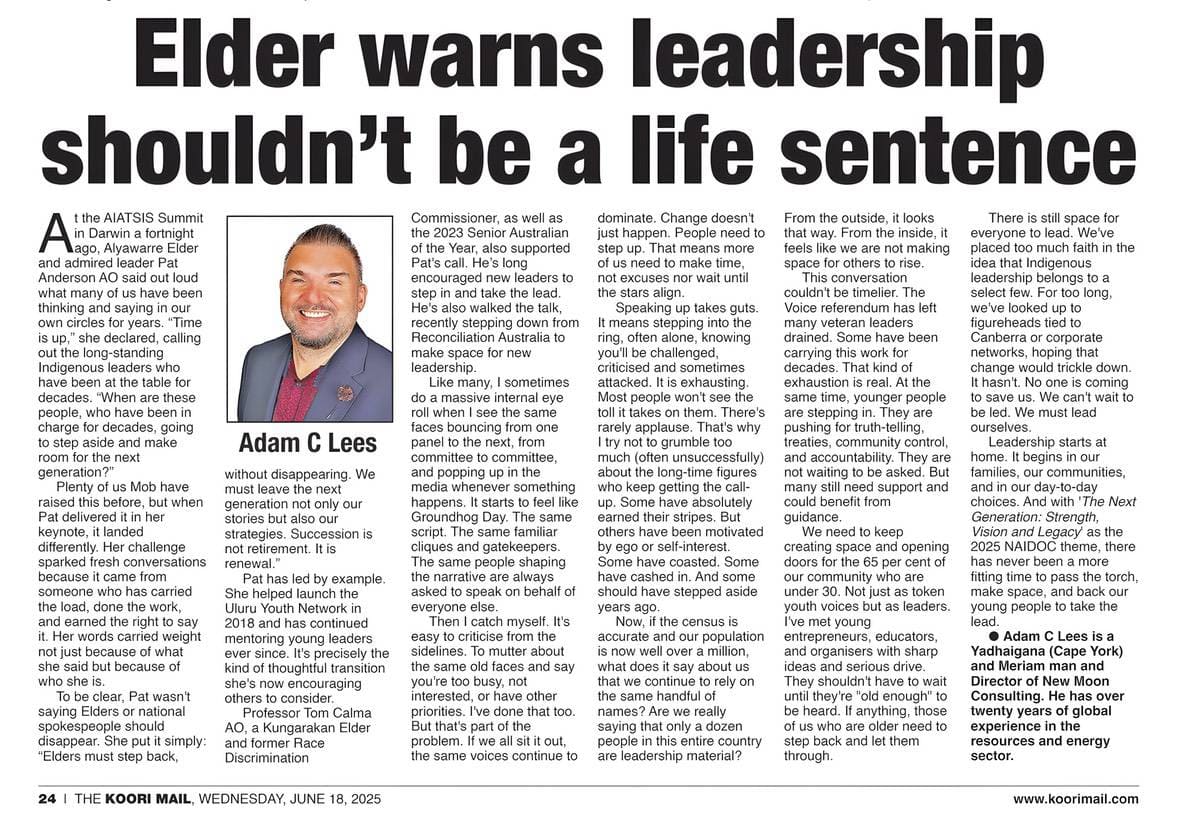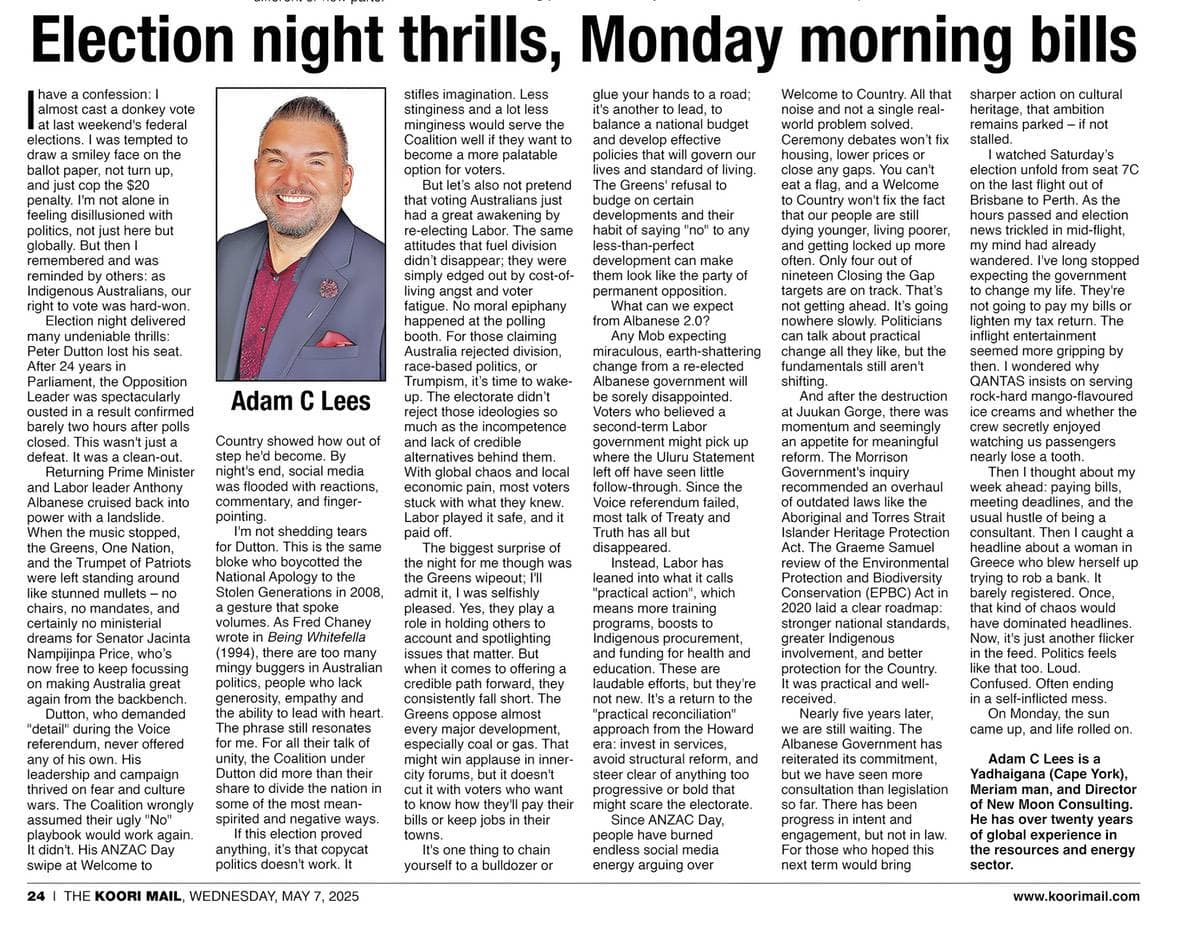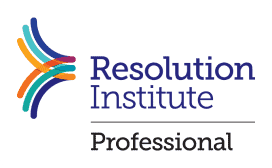Last month, the Senate Inquiry into Murdered First Nations Women and Children wrapped up after two years. It included sixteen hearings and over 80 submissions. The 227-page Inquiry report highlighted ongoing patterns of systemic failures across Australia, noting that First Nations Women and children remain disproportionately affected by violence. Still, their cases are often mishandled and ignored by authorities. A lack of accurate statistics on the murdered and missing was also called out.
The report made ten critical recommendations, including a review of police practices, ongoing and sustainable funding for family violence prevention services and balanced and better media coverage of these cases. Importantly, the report called for the full implementation of recommendations from previous inquiries, such as the Royal Commission into Aboriginal Deaths in Custody and the landmark Bringing Them Home Report following the Human Rights and Equal Opportunity Commission (HREOC)-led National Inquiry into the Removal of Aboriginal and Torres Strait Islander Children from Their Families.
No sooner had this report been released than the predictable cycle seen after most Commonwealth inquiries began with advocates, community groups, and families promptly condemning it as inadequate and toothless, arguing that the recommendations didn’t go far enough. This pattern of disappointment has become all too familiar.
The perennial Commonwealth inquiry process often feels like a well-rehearsed spectacle, like something from a series of Lady Bird Books for Grown-Ups. Terms of Reference are issued. Then, the public, including community and interest groups, civil society organisations and corporations, make submissions. There’s usually media coverage as they lead into the grand finale: public hearings. Everyone gets their say, whether they have something to add or just enjoy hearing their voice. Then comes the pièce de résistance: the interim or final report – usually a carefully crafted document replete with recommendations, ensuring the Inquiry hasn’t been a complete waste of time and that there seems to be something substantial and voluminous to show for all those years of waiting and bureaucratic churning.
Then, as soon as the final report is released, as is frequently the case, those recommendations are ignored, at least or poorly implemented at best. These reports gather dust on a shelf or become a doorstop. And then, another Inquiry begins.
As a cynical public, we’re left wondering if these inquiries are more about the performance of politicians being seen as doing something rather than delivering tangible outcomes. Take, for example, the 2020 Commonwealth Inquiry into the destruction of the Juukan Gorge rock shelters in the Pilbara region of Western Australia. Its interim report, ‘Never Again,’ was tabled in December 2020, followed by the final report and recommendations, ‘A Way Forward,’ in October 2021. Several years on, we still need to achieve strengthened and harmonised national cultural heritage reforms and protections. Western Australia has already repealed its new Heritage Act, reverting to the original and outdated 1972 legislative protections.
Over the years, there’s been a parade of Parliamentary Inquiries, hearings and reports, all probing and promising to address important First Nations issues – the most prominent being the Royal Commission into Aboriginal Deaths in Custody (1991). Some inquiries have dealt with social justice and human rights considerations. In contrast, others, like the Select Committee on the Aboriginal Flag (2020) and the Aboriginal Land Rights (Northern Territory) Amendment (Economic Empowerment) Bill (2021), focused on protecting Indigenous rights and interests.
The Inquiry into Missing and Murdered First Nations Women and Children (2022-2024) ran concurrently with hearings to support economic outcomes, including the Inquiry into Workforce Development in Northern Australia and Better Corporate engagement with Aboriginal and Torres Strait Islander consumers. Other inquiries, such as those on the UN Declaration on the Rights of Indigenous Peoples (2023), the Voice to Parliament and its referendum (2023), sought to enshrine self-determination and guarantee a minimum standard of rights for First Nations Australians.
Now, the latest public hearings include the Protecting the Spirit of Sea Country Bill (2023) and the Truth and Justice Commission Bill (2024), which also aim to enhance protections, embed the United Nations Declaration of the Rights of Indigenous Peoples (UNDRIP) principles and promote truth-telling.
The recent, tragic suicide of a 17-year-old young man at the Banksia Prison in Western Australia is a painful reminder of the ongoing neglect and failure faced by First Nations youth in custody. It has sparked calls for yet another inquiry—a coronial inquest—which will likely repeat what we’ve heard from countless other investigations. This heartbreaking event highlights the lack of action following the Royal Commission into Aboriginal Deaths in Custody, which underscored the urgent need for better care and support for Indigenous detainees.
Despite all the submissions, public hearings, and interim and final reports with recommendations, incidents like this continue to expose the deep flaws in our justice and Parliamentary systems, where vulnerable young people are left at risk and calls for reform are unanswered. It’s not just about the endless reports or repetitive inquiries—it’s about lives that continue to be lost and ignored despite all the recommendations that continue to be ignored.
And like gluttons for punishment, we continue to put our faith in these tokenistic processes, hoping they’ll deliver something more or better next time. I say no more inquiries as a form of political theatre! What we need is real reform. It’s time to act, listen to First Nations voices, deliver tangible outcomes and honour the work done over the decades. Until that happens, these inquiries will continue to waste time, money, and hope.
Adam C Lees is a Yadhaigana (Cape York), Meriam man, and Director of New Moon Consulting. He has over twenty years of global experience in the resources and energy sector.







